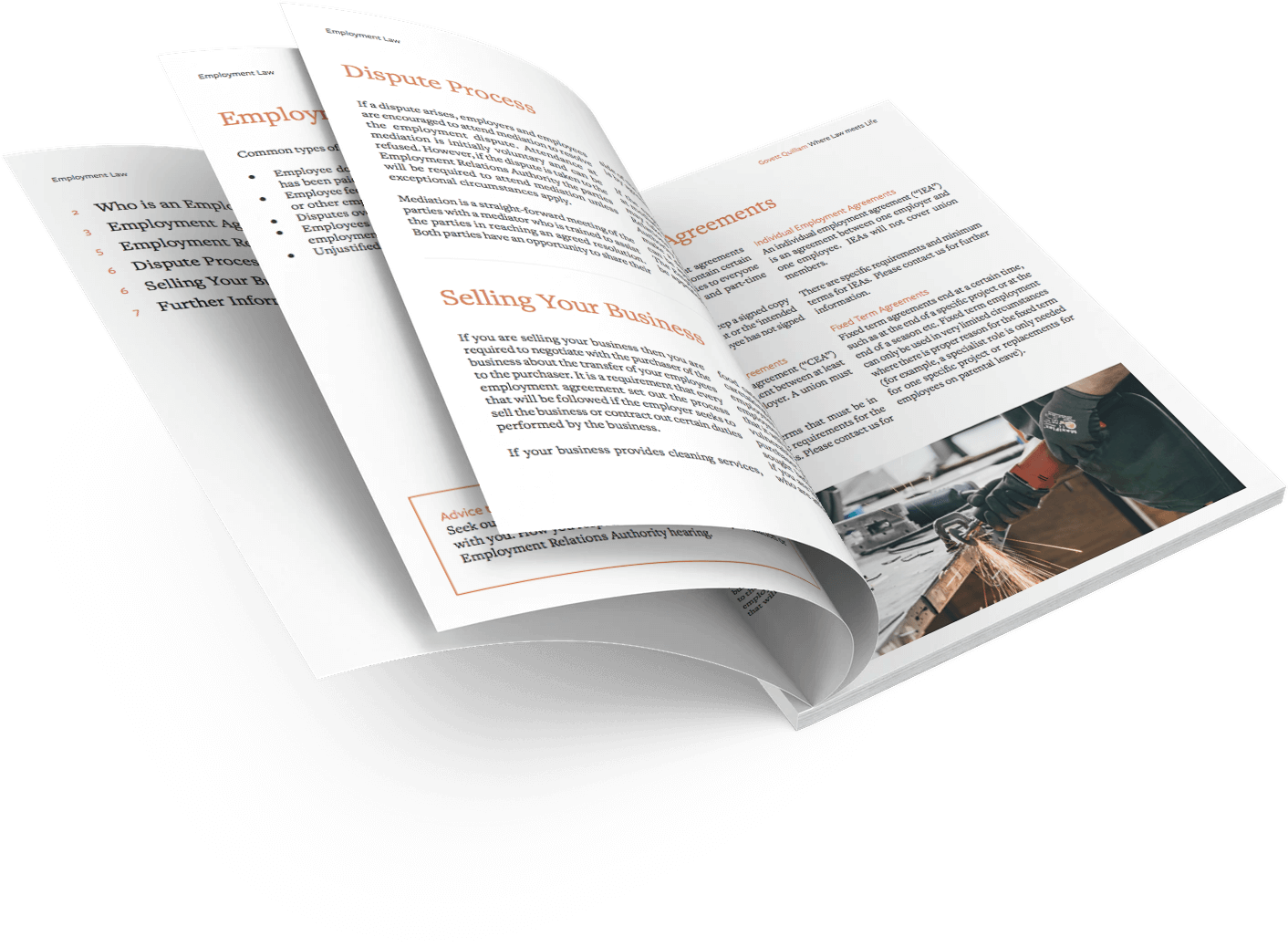
GQ Insight
Good faith, a term commonly used by employment lawyers, but likely a term that will gain in prominence as the nation comes to terms with the impact of Covid-19.
A week into this current Government-enforced lockdown, a term employers are now very much aware of is wage subsidy. Such is its significance to public discourse up and down the country it is worth remembering that the scheme that carries its name was only introduced on 17 March 2020.
Further, while it is a term we know, it would be a stretch to suggest it is a term we understand. Given the lifeline nature of the wage subsidy scheme, that is understandable. Greater clarity, we are assured, will come in the coming days and weeks through a wave of Government announcements.
For now the questions mount – how does the wage subsidy scheme affect accrual of annual leave, or for that matter Easter/public holidays; what do they mean exactly by passing it on to my staff; what if my staff refuse to work; what if my staff can’t work; what if my staff normally earn less than the subsidy; what if my business fails in this 12-week wage subsidy period – and those are only a sample of questions in the context of the wage subsidy scheme.
There are wider issues – given Covid-19 do I still have an obligation to consult? If my staff refuse to accept a pay reduction, can I just reduce it anyway? Again, the questions are mounting.
Further, certain concepts that have dwelled the lonely hinterlands of employment law (possibly with the exception of those dealing with the aftermath of the Christchurch earthquake), namely force majeure clauses in employment agreements and frustration of contract, have suddenly become hot topics.
Despite also the murky scene that employers are currently facing (in actual fact, everyone is facing), it is worth keeping some key principles in mind.
Businesses out of sheer necessity have had limited time to re-assess their financial positions - talking with your accountants, bank managers, insurers, landlords, clients – and then at the same time making estimates about revenue and how you might be able to continue not just within the lead-up to 22 April 2020, but beyond.
Employers should continue to ensure also that there is a level of transparency around what they discuss with their staff. The point here is that employers should not rely, as some appear to have done, on answering every question from their staff with “coronavirus”, particularly when those questions relate directly to fundamental terms of employment, or continuation of employment.
This comes back to the issue of good faith.
The Employment Relations Act 2000 requires employees and employers to deal with each other in “good faith”.
In the employment law context that term is generally understood to mean, in a very broad sense, that you cannot deceive or mislead your staff. In effect, being open and honest with your staff, especially when making a decision which may negatively impact on their job.
Of the many troubling issues now facing New Zealanders, the extent to which the concept of good faith is stretched by the impact of Covid-19, may not be high up that list. However, for many Kiwis, unfamiliar with judicial pronouncements about good faith, they will be familiar with its broader use – honesty, openness, fairness (probably best exemplified currently by the notion that ‘we are all in this together’). Principles that may still offer some guidance in the weeks and months ahead.
GQ insight piece written by Partner, Troy Wano.






.png)

